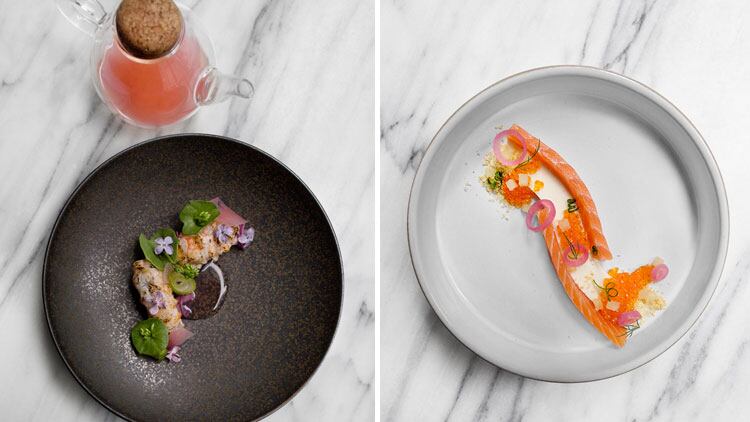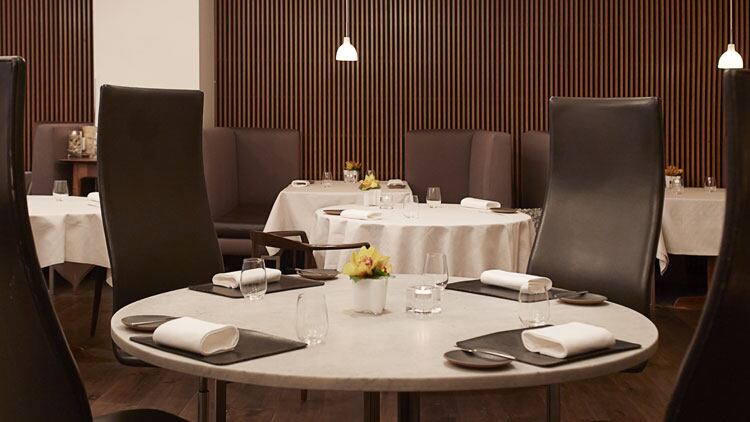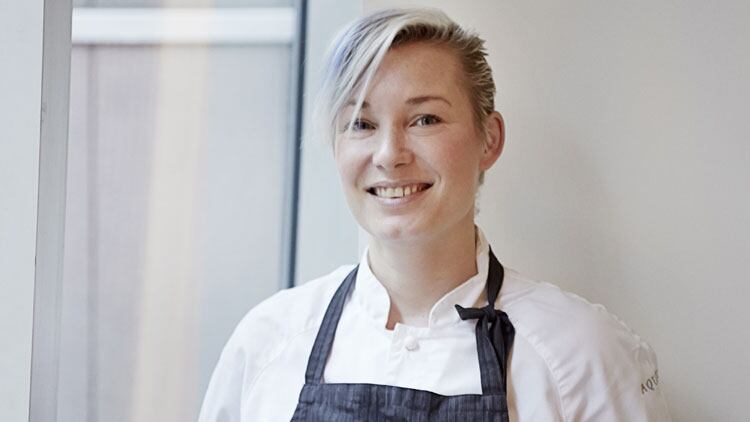At two Michelin-starred Aquavit in New York the Swedish-trained chef has outlawed swearing and introduced a zero-tolerance policy on bullying and harassment. Bengtsson joined the restaurant as pastry chef in 2010 before being promoted to executive chef in 2014 and overseeing the restaurant win its second Michelin star. She also helped launch Aquavit's London outpost in 2016.
Bengtsson spoke at Food on the Edge, a two-day food and restaurant symposium held in Galway last month, about how her own experiences shaped her approach, dealing with guilt at not being in the kitchen and why restaurants are at ‘tipping point’.
On starting in an industry where a bad culture is the ‘norm’
We all know yelling, throwing pans and 20-hour days are just the tip of the iceberg of what goes around kitchens. For people in different occupations it must seem insane. But [being a chef] is a profession we all sought out and not only accepted [this behaviour] as norm, we came to admire it. We put our heads down, we grew thick skin – both literally and figuratively – and got the job done, because working in a top kitchen, even where the conditions were horrible, was like a badge of honour. You knew that if you could get through that you could survive anything.
Personally I find myself very lucky that I came into the kitchen just around the turning point. Everything was starting to change…but I figured out very early in my career that as long as I kept my head down and mouth shut and kept under the radar I would be mostly fine. Being a woman in the kitchen added more pressure to that already hard environment. It was just the way it was ‘supposed’ to be. We didn’t know anything else.
Dealing with the guilt of not being in the kitchen
I sometimes worked 16-hour days and around 80-hour weeks. I didn’t think about anything else. I often wondered going home late how it would feel to have a night off. What did people do? And most of the times when I did have a night off I ended up getting drunk and passing out, then all of a sudden it was time to show up to work again.

I think I glorified these things and I still look back on them as the most perfect days of my life. I had a conversation with my mum a couple of years ago saying I felt so lucky that I was always in good health and could show up for my team. She just laughed and said ‘you were almost always sick, but that never stopped you from going to work’.
It reminded me of a night when I had to start a new job the next day. I was terribly sick, landed in the emergency room getting ready for surgery and I remember feeling this pain that I couldn’t be there for the new staff the next day. Even then in the hospital I felt that I had disappointed the team. I knew going in a couple of days later would already put me at a disadvantage and they would already question my loyalty.
Why restaurant kitchens are changing
Right now we’re at a tipping point. We’re at a very privileged spot to make change for the better. We need to make sure we preserve what was good in the old days, while pushing forward into better kitchens.
To start we all have to decide that harassment, bullying, hot pan throwing and knife stabbing is no longer accepted in the kitchen.
I think a quiet kitchen is a key. There should be no yelling or screaming. I also have a zero-tolerance policy to swearing. I feel like when it comes to bad words it escalates, and I never thought it was a very grown up thing to swear. On that rule I don’t budge; if you can’t live by it you have no place in my kitchen.

I also think five [work] days are enough. I know there are countries who do three or four day weeks, but I do believe you can manage a kitchen on five days. I’m not always very good at it but I try as much as possible, and it encourages my head and sous chefs that I trust them enough not to be there every single day.
I also want to highlight that it’s ok to be sick and go home. Though a lot of times my cooks will have to send me home. It’s still hard follow my own rule.
The importance of working collaboratively
It’s important to work with a kitchen as a team and help them understand that it’s not top-run. Everyone has a say in what’s going on and all ideas are welcome, even the crazy ones.
We should never stop listening to our cooks and the people who show up for us every day. If you can’t respect and work with them they will move on. In this industry right now it’s so rare to get loyal people working for you. I don’t want cooks coming in and staying for a month, I want people to be with me for years. That for me is proof that I’m running the kitchen the way I want it.
I want all the chefs around me to think about how we can make a change. How do we get all the staff, not just back of house, to show up and love what they do? We can’t lose that feeling of when you show up and do a 10 hour day, but you love it.
Food on the Edge is a two-day food and restaurant symposium held in Galway

